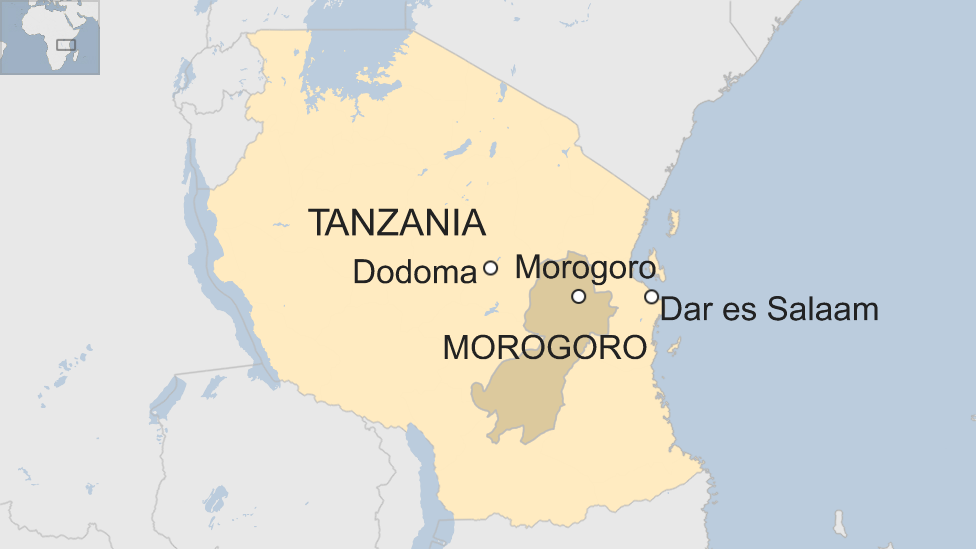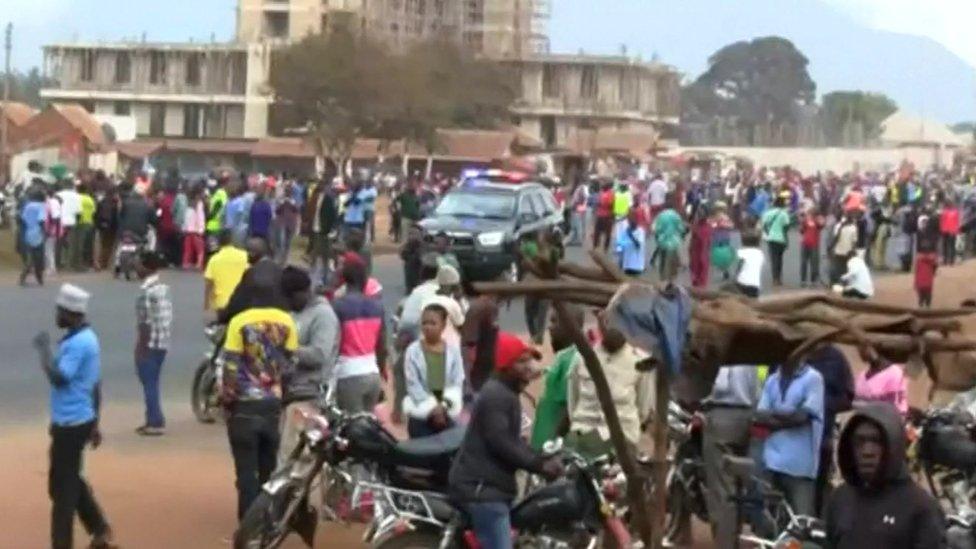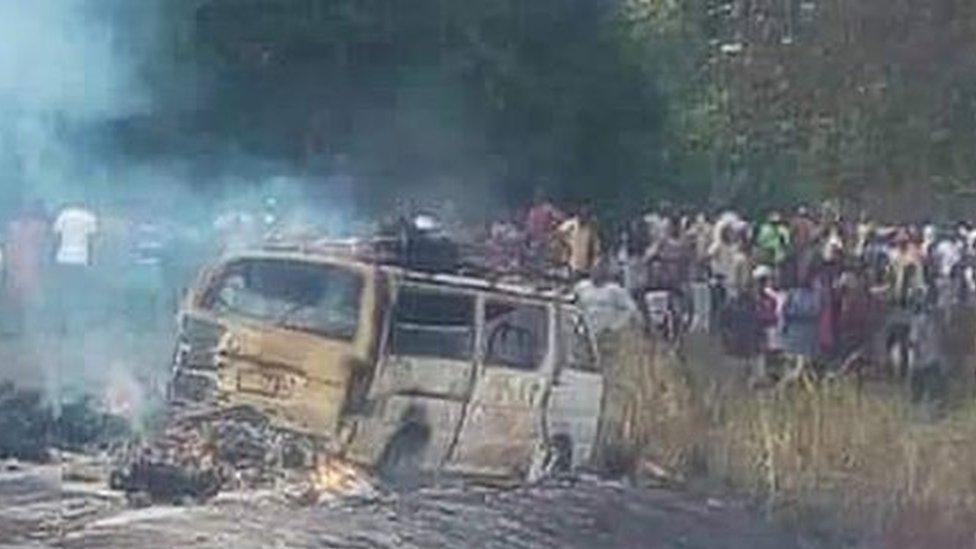Tanzania mourns 64 killed in fuel tanker explosion
- Published
A tanker burns in Tanzania after a deadly explosion
Mourning is under way in Tanzania for the 64 people who died when a fuel tanker exploded on Saturday.
Pictures posted online show flaming wreckage scattered over a wide area and charred bodies lying on the ground.
People were trying to recover fuel from the vehicle, which had overturned on a major road, when it exploded.
The incident occurred in Morogoro region, about 200 km (124 miles) west of the port city of Dar es Salaam, the country's commercial capital.
The city of Morogoro is on a major route for transporting cargo and fuel from the port.

Some of the 70 people who were injured with serious burns were airlifted to Tanzania's biggest hospital, Muhimbili, in Dar es Salaam, while others were taken there in a convoy of ambulances.
Most of those who were killed were burned beyond recognition.
The burials are due to start later on Sunday, labour minister Jenister Mhagama said.
"The situation is really bad. Many people died here, even those who were not stealing fuel because this is a busy place," said eyewitness Daniel Ngogo, quoted by Reuters news agency.
Local Police Chief Willbrod Mtafungwa said many of those killed were motorbike taxi drivers.
President John Magufuli has declared the three days of mourning and pleaded for people to stop risking their lives by stealing petrol.
"There are vehicles that carry dangerous fuel oil, as in this case in Morogoro, there are others that carry toxic chemicals or explosives, let's stop this practice, please," AFP news agency quotes him as saying.

Crowds gathered near the scene of the disaster
Correspondents say disasters like this have happened all too frequently in parts of Africa where some people are willing to take huge risks to remove fuel from tankers and pipelines.
Last month at least 45 people were killed when a crashed fuel tanker exploded in Nigeria's northern Benue state.
Nearly 80 people died in May in a similar incident near the airport of Niger's capital Niamey.
Occasionally such disasters have led to a much higher death toll. In 2010 292 people were killed in the Democratic Republic of Congo, and five years later 203 died in South Sudan.
- Published2 July 2019
